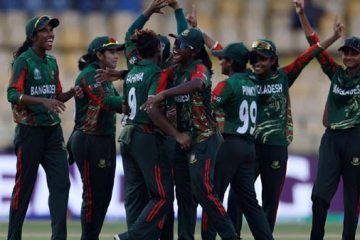The International Cricket Council is considering a constitutional change incorporating the two-tier system for Test cricket with promotion and relegation between them, said the officials on Thursday.
Under the proposed system, seven nations will be placed into division one and five in division two, with promotion and relegation decided in every two years.The constitutional change will be discussed in ICC’s annual general meeting starting on June 27 in Edinburg and could come into effect after the 2019 World Cup.
Based on the current rankings, West Indies, Bangladesh and Zimbabwe would slip into division two and they will be joined by two best teams from the 2015-17 Intercontinental Cup.
In division one it is envisaged that all seven nations would play a series against each other, either home or away, over a two-year cycle.
The leading team would win the Test championship, while the bottom side would face relegation.
If the two-tier system is approved Bangladesh will be denied of an opportunity to play Test cricket against the top teams, which officials feared would inevitably take country’s cricket backward.
It will also affect the revenue of the BCB as it will then earn very insignificant amount from television rights.
The members of the Bangladesh Cricket Board working committee was informed of the development by the chief executive officer Nizamuddin Chowdhury during its Thursday’s meeting.
‘We discussed about what should be our position in this regard,’ said working committee chief Enayet Hossain after a meeting. ‘It’s a serious decision and we should consider all aspects. I am sure we will take position which will be appropriate for us.’
A BCB official preferring not to be quoted said, if Bangladesh votes for the proposal even if there is a lure of some money, it will tantamount to a suicide for Bangladesh cricket.
‘It’s a dangerous proposal for us,’ he said. ‘There is no way we can vote for it.’
The two-tier system is not completely new thing as ICC’s current chief executive officer Dave Richardson had suggested it in 2009 to make Test cricket more co mpetitive.
Bangladesh somehow managed to block the move with the help of some other lower-ranked side before Australia, England and India proposed it again during ICC’s restructuring in 2014.
Bangladesh had initially decided to vote for it without considering the consequence before a strong public reaction forced the BCB renegotiate the issue with the so-called Big Three.
Later it was decided that the 10th-ranked side on the ICC Test team rankings on December 31 2017, will play in the ICC Test Challenge Cup in 2018 with the 2017 Inter Continental Cup champions.
-With New Age input




















